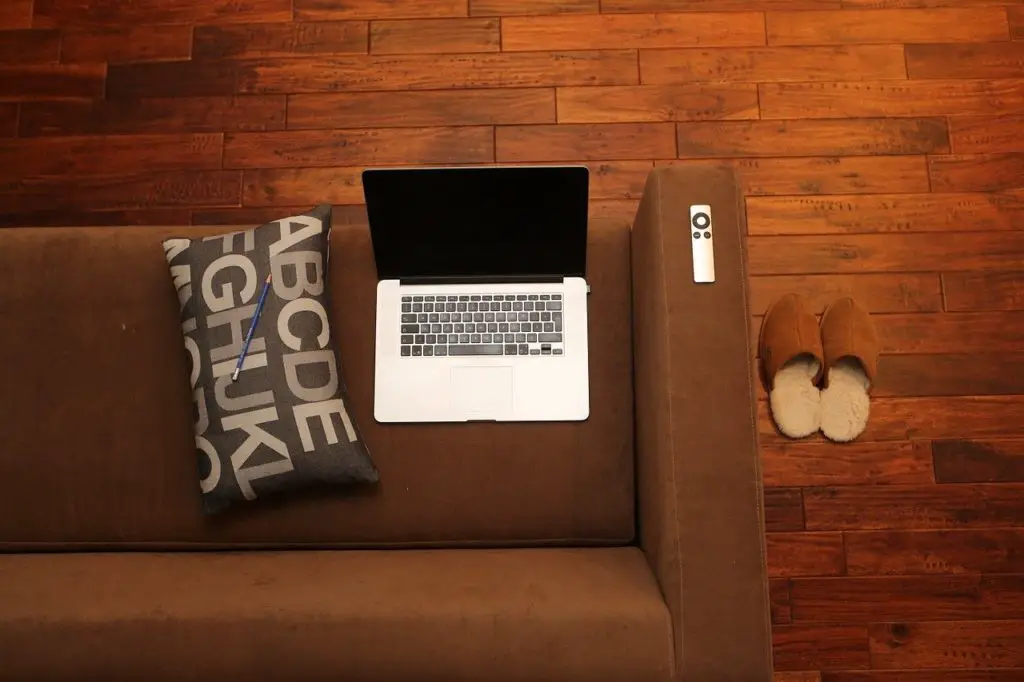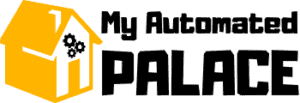
Hardwood floors are exquisite and can transform the look and feel of any space. Unfortunately, maintaining that beautiful appearance requires a lot of work.
You need to vacuum twice a week to ensure dust or debris doesn’t take the shine out of your hardwood floors. This is where Roombas and other robot vacuums can help. They save you time and energy, but are they safe?
Roombas are safe for hardwood floors, but only if you buy models that are specifically configured to allow for use on such surfaces. Such models come with special brushes that will not scrape or scratch your hardwood floors. The newer Roomba models are designed to work on all surfaces.
In this article, I will show you exactly how to pick the right Roomba for your hardwood floor and other useful robot vacuum tricks you should know.
Roomba: The Tech-side you’ve got to know

A Roomba is a compact, digital vacuum cleaner designed to clean your home without any inputs from you.
Just like standard cleaners, Roombas pick up dirt with special brushes and a vacuum.
They also come with tractor-style wheels that are designed to turn independently in opposite directions.
This allows the machine to clean spaces efficiently.
Roombas are battery-powered and come with sensors that allow them to dodge obvious obstacles.
After cleaning the floor, the machine will find its way back to its dock to recharge for the next use.
Why Should You Use Robot Vacuums Like Roombas?
Using a Roomba can help you put those thirty minutes you spend vacuuming every few days to use doing something else.
Today, robots are doing everything, from driving cars to working in assembly plants.
Roombas and other similar models are the modern way to clean your floors.
They don’t just save you time; they also save you the hassle and the extra cost of hiring someone.
How to Choose a Roomba for Your Hardwood Floor
To avoid choosing a Roomba that will leave marks all over your hardwood floor, here’s what you should do.
Avoid Models With Typical Rolling Brushes
The typical rolling brushes on robot vacuum cleaners are designed to lift dirt, hair, and other debris that can hide inside carpets.
With a hardwood floor, this problem doesn’t exist. Such brushes will, therefore, end up scratching the wood.
The best Roombas for hardwood floors come with brushes that are designed to detect a carpet or a hardwood floor and will vary the intensity of the machine to match the surface. Pretty cool huh?
Look for Models With Proper Padding
The padding is important for preventing digs, scratches, and similar damages on your hardwood floor.
However, you’ll still need to check the underside of the padding to remove any lodged dirt that can render the padding ineffective.
Focus on Compact and Lightweight Options
Lightweight Roombas are easier to carry around, and they won’t apply too much pressure on the floor while cleaning.
The minimal pressure on the hardwood floor reduces the chances of scratches and damage.
Things to Keep in Mind When Choosing Your Roomba Vacuum Cleaner
To make the right decision on your choice of robot vacuum cleaner, there are a few things you should keep in mind.
What Is the Size of Your House?
You need to consider the space the vacuum cleaner will cover. Some options are designed to work best in small spaces.
Models like the iRobot Roomba i7, on the other hand, are built to work in large spaces of up to 2,000 square feet.
You can also rely on this model to cover multiple rooms in one cleaning session.
Do You Have Tight Spaces?
If you want a robot vacuum that can fit under your dressers and beds while cleaning, you should look for models that fit the specifications.
If you buy an option that is more than 4-inches tall, it’s highly unlikely that it will fit under those tight spaces.
Do You Have Carpets on Your Hardwood?
If you’ve got carpets across your floor and you are choosing a Roomba or any other vacuum cleaner with only a focus on how it will interact with the hardwood, that’s a big mistake.
You should ensure you are choosing a model that won’t stop working when it gets to your carpet or one that will just go over the carpet without cleaning it.
Options like the iRobot Roomba i7 are designed to detect surface changes, making the switch from cleaning hardwood to carpets (and vice versa) effortlessly.
Most of them will increase the power output once they sense a carpet, and dial it back down when they detect hardwood again.
If you don’t have carpets on your hardwood floor, you can look for cheaper models that don’t come with the power to clean carpets.
A good option is the ILIFE V3s Pro.
Do You Have Pets?
Roombas and other robot vacuum models are now more equipped to clean up after pets, but you still need to carefully pick one that does what it says on the tin.
Apart from the iRobot Roomba i7 and the iLife V3s, options like the Samsung Powerbot R7070 and Neato Robotics D6 can easily pick up cat hair and dog fur.
They also come with HEPA filters that can get rid of the allergens in the air. The downside to using robot vacuums that can clean up after your pets is that they need regular maintenance.
The HEPA filters, roller brushes, and side brushes will need replacing more frequently.
Also, don’t forget to get a model that has enough bin space to complete a cleaning session without needing to be emptied. Look for dustbins of 600 millimeters and above.
Do You Want Internet Connectivity?
It’s not unrealistic to want the ability to control your vacuum cleaner from your mobile phone.
More manufacturers are adding internet connectivity to the design of their vacuum cleaners.
Options like iRobot Roomba i7, come with an app through which you can send commands to the vacuum cleaner.
Some of them also offer integration with Amazon Alexa or Google Assistant.
This means you can use voice control to get the device to start a cleaning session, and even guide it around your home where necessary.
However, models that don’t offer internet connectivity are often cheaper. Such models aren’t entirely without hands-free control, though, as you’ll typically find remote controls inside the box.
Depending on the layout of your home, you probably won’t need the remote control, but it is a good option to have just in case the robot gets stuck somewhere.
What Are the Best Roombas to Buy?
You’ve already seen the iRobot Roomba i7 above. It checks almost every box you can think of when buying a robot vacuum.
Two features that make it stand out are the patented Clean Base Automatic Dirt Disposal and the AllergenLock bag that can contain two months’ worth of debris.
If you are only looking for a Roomba that can seamlessly go from cleaning your carpet to cleaning your hardwood floor without leaving scratches, however, the iRobot Roomba 614 is an excellent option to consider. It comes with multi-surface brushes specifically designed for this purpose.
The iRobot Roomba s9+ is the top-of-the-line option to go with if you want a robot vacuum that does everything. It offers automatic dirt disposal, internet connectivity, anti-allergen and smart mapping systems, etc. It’s not difficult to see why it is one of the costliest in the market today.
Conclusion
Roombas are safe for hardwood floors, as long as you buy a model fitted with the right technologies to work on a wooden floor.
Some of the options discussed above come highly rated by other homeowners like you seeking to cut down on the time they spend cleaning their floors.
